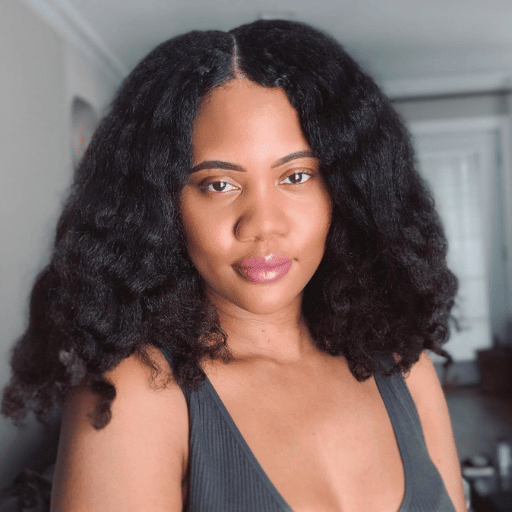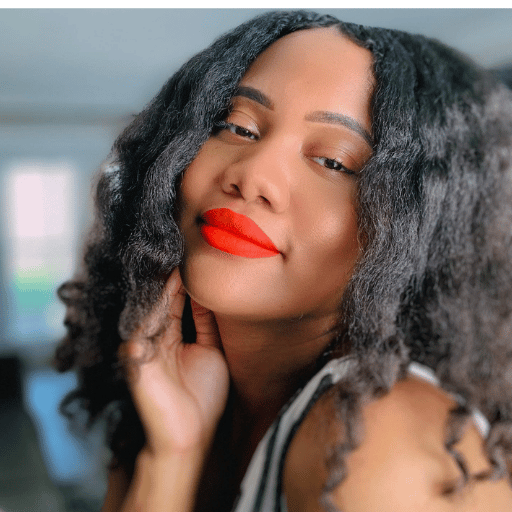With so many different types of conditioner, it can become confusing as to the differences between them all. Continue reading this post to find out more below!
What Is Conditioner?
Conditioner is a product applied to the hair after shampooing which helps to smooth, add shine, nutrients and provide more manageability and detangling properties to the hair when styling. Conditioner can come in many different forms and they are catered to all different hair types and textures.
There are so many different conditioners on the market and so it is important to know which one is for which and if it will be beneficial to your hair and hair regimen. Let’s take a look at the different types of conditioner below.
This post is all about types of conditioner.
What Are The Different Types Of Conditioner?
There are 8 different types of conditioner that can provide beneficial results to your hair.
1. Cleansing Conditioners– also known as “co-washes”, are conditioners that contain ingredients that help to remove some of the dirt and oil buildup on the hair. Cleansing conditioners are a great product to use for that those that want to wash their hair more frequently than once per week, without using a traditional shampoo.
Cleansing conditioners are a gentle alternative to shampoos, as they help to gently cleanse the hair while maintaining moisture levels and avoid completely stripping the hair of its natural oils.
Since conditioners are formulated to add moisture to the hair, they are a better choice when washing your hair more frequently. Traditional shampoos can strip the hair of its oils, resulting in dryness if used too often.
By using a co wash or cleansing conditioner, you won’t be able to thoroughly cleanse your hair but it will be a great way to balance a more frequent yet gentle washing routine while maintaining your moisture levels. This regimen is great for people who work out and may want to refresh their hair throughout the week to keep it smelling and looking fresh.
🏆Top Pick: As I Am Classic Coconut Co Wash
2. Rinse Out Conditioners– Conditioners that are meant to be rinsed out after a very short period of time. They are often used right after using shampoo and they are a quick way to provide moisture back into the hair after it has been stripped away by shampoo.
Rinse out conditioners are great for on the go when you have no time to leave a treatment in for 20min or more. Rinse out conditioners coat the strands, providing slip and extra manageability when detangling.
They can help to provide the hair with a quick boost of moisture, that also leaves the hair feeling silkier. Rinse out conditioners provide shine, smoothing and softening properties to the hair. If you use a conditioner with key ingredients to repair the hair, you can often look forward to hair that feels stronger too.
🏆Top Pick: The Mane Choice Tropical Moringa Conditioner
3. Deep Conditioners– The most concentrated formulation of conditioners, deep conditioners are helpful in their ability to provide intense moisture, repair, nourishing and hydrating elements to the hair strands.
Deep conditioners are great to use as part of every shampoo session (do not use a rinse out conditioner if you will be using a deep conditioner and do not deep condition after using a cleansing conditioner), due to their ability to penetrate deeper into the hair strands when compared to a rinse out shampoo that is formulated to simply coat the hair.
A deep conditioner helps to restore moisture from within by minimizing dryness, helping to combat frizz and repairing the overall appearance and texture of the hair. If your hair looks dull, you will want to incorporate using a deep conditioner as opposed to a rinse out for a long term noticeable difference.
🏆Top Pick: Mielle Organics Babassu & Mint Deep Conditioner
4. Hair Masks– also known as treatments and deep conditioners, a hair mask is formulated to intensely repair the hair strands that are especially prone to dryness, frizz, color damage and heat damage.
Many hair masks also provide targeted ingredients that help to restore the hairs elasticity and help to repair the hair strand from the inside out. They are great for improving the overall appearance and health of the hair, provide intense hydration, protect against heat styling, color services and breakage.
🏆Top Pick: TGIN Honey Miracle Mask
5. Leave- In Conditioners– these conditioners are specifically designed not to be rinsed out of the hair after use. The great thing about leave in conditioners is that they tend to provide on going benefits to the hair even after you have conditioned or deep conditioned.
Leave in conditioners also provide another layer of moisture to the hair before you go in with your stylers of choice. Think of a leave in conditioner as primer or base layer before using your styling creams, mousses and gels.
Being that they provide ongoing moisture to the hair, this helps with detangling before setting your style in place as well. Leave in conditioners work well for dry hair that needs an extra boost after rinsing out their deep conditioner, to help slow the process of the hair drying out so quickly.
A leave in conditioner can also help to provide a layer of heat protection before going in with heat styling tools, control and reduce frizz, improve shine and manageability of the hair as well.
🏆Top Pick: Curls Blueberry Bliss Leave In
6. Conditioning Refresher Sprays– also known as revitalizing sprays or simply refresher sprays, these products are used to add a boost of moisture, fragrance and nourishment to the hair during the week while the hair is already styled.
You can typically spray as little or as much as you like, as refresher sprays are typically formulated to be spray onto the hair and contain a high water content. This means that you won’t run into your hair feeling weighed down after each use.
Refresher sprays are great for extending the lifespan of a hair style for a more hydrated look when it maybe getting closer to wash day.
🏆Top Pick: Cantu Comeback Curl Refresher Spray
7. Color Protecting Conditioner– these conditioners deserve their own shine due to the fact that they contain specific ingredients that lock in color and help to prevent the color from fading so quickly.
They also help to maintain, protect and extend the overall vibrancy and hue of the hair color. When your hair has been treated with color, sometimes this can strip the hair, so incorporating a color protecting conditioner can help to nourish and hydrate the strands.
🏆Top Pick: Biolage Color Last Conditioner
8. Protein Conditioner– if you notice that your conditioner label has the words “strengthen” or “repair”, you can bet that your product is specifically formulated with silk amino acids and other proteins to strengthen and help repair weak, brittle hair.
Proteins are essential because not only is your hair made of proteins, but when added in your hair products they fill in the gaps where they may be missing on each follicle. By these protein gaps filling in, you will notice that your hair does not break off as easily.
Elasticity treatments are essential as they are packed with protein, in order to help the hair become more pliable. Hair that is flexible, can bend and move without snapping is key when it comes to having healthy hair.
🏆Top Pick: Aphogee Two Step Protein Treatment
Can You Leave-in Any Type Of Conditioner?
No you can not use just any conditioner as your leave-in or leave any conditioner in for longer than recommended on the product label of instructions. Each conditioner is different and if you decide to use one longer than recommended, you can run into hair issues such as hygral fatigue, hair that is limp and heavy with product build up.
Leave in conditioners and conditioning refresher sprays should be the only types of conditioner that are left on the hair without rinsing out. If you decide to try to leave your rinse out conditioner or deep conditioner in as your leave in, you will soon find out that the hair does not respond as well when layered with other styling products.
Your hair will feel weighed down as conditioners meant to be used in the wash phase are often made with heavy formulations that may not evaporate or dry down as well on the strands. You might notice a white cast (or whatever color the product is) left on your hair once it is dry.
Can You Over Condition Your Hair?
Yes, you certainly can over condition your hair. This happens by using a conditioner too frequently (more than once a week and yes, this goes for cleansing conditioners too if you’re not careful), leaving your conditioner in longer than the recommended time suggested on the product label and/or by trying to use your conditioners as make shift leave ins and refresher sprays.
Keep in mind that by using conditioners that are too heavy for your particular hair type, you could also run the risk of over conditioning and weighing it down. If your hair feels heavy, greasy and weighed down it could be a sign that you are over conditioning your hair. Your hair will also look particularly flat and lack the volume you may have once had as one of the signs of over conditioning.
Using a conditioner that is formulated with proteins and amino acids too often or for long periods of time that aren’t recommended by the instructions on the product label, could also result in hair that becomes so elastic that it breaks off easily.
Should You Condition Your Scalp?
When conditioning your hair, it is always best to avoid conditioning your scalp unless you are using a treatment that specifically targets scalp health. Conditioning your scalp can lead to different issues such as itching, flaking and excessive oil production.
If you place conditioner on your scalp, it can also clog the pores which can slow down your hair growth journey. Always try to condition your hair strands paying close attention to avoid your scalp for the best possible results in your hair journey.
Comment below our favorite conditioner and often you use it!
This post was all about types of conditioner.
More in Conditioning:



Recent Comments